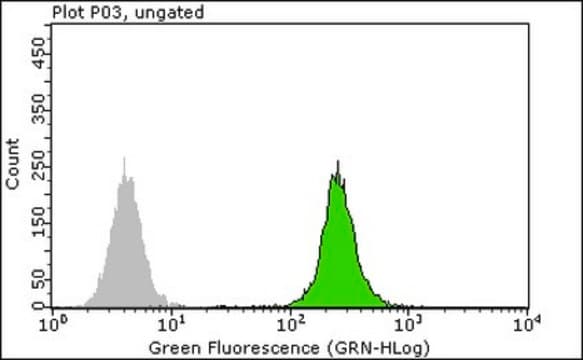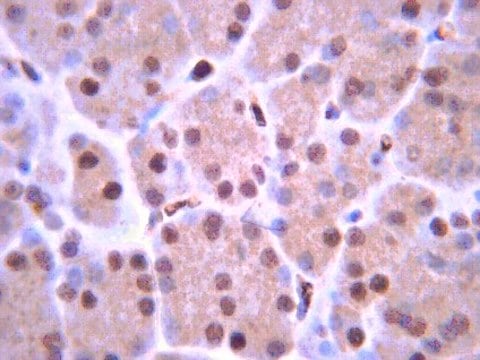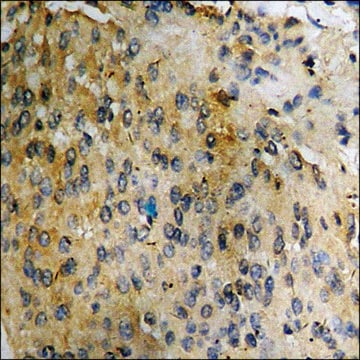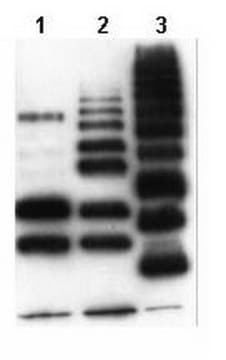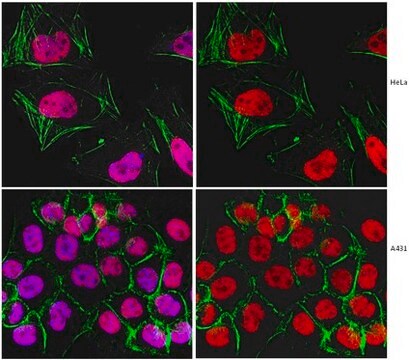MAB4356
Anti-DPPA-2 Antibody, clone 6C1.2
clone 6C1.2, from mouse
Sinonimo/i:
Pluripotent embryonic stem cell-related gene 1 protein, developmental pluripotency associated 2
About This Item
Prodotti consigliati
Origine biologica
mouse
Livello qualitativo
Forma dell’anticorpo
purified antibody
Tipo di anticorpo
primary antibodies
Clone
6C1.2, monoclonal
Reattività contro le specie
mouse
tecniche
western blot: suitable
input
sample type: mouse embryonic stem cell(s)
Isotipo
IgG2aκ
Condizioni di spedizione
wet ice
modifica post-traduzionali bersaglio
unmodified
Informazioni sul gene
mouse ... Dppa2(73703)
Descrizione generale
Specificità
Immunogeno
Applicazioni
Stem Cell Research
Pluripotent & Early Differentiation
Qualità
Western Blotting: Recommended working concentration is 2 µg/mL.
Descrizione del bersaglio
Stato fisico
150 mM NaCl with 0.05% sodium azide.
Stoccaggio e stabilità
Altre note
Esclusione di responsabilità
Non trovi il prodotto giusto?
Prova il nostro Motore di ricerca dei prodotti.
Codice della classe di stoccaggio
12 - Non Combustible Liquids
Classe di pericolosità dell'acqua (WGK)
WGK 1
Punto d’infiammabilità (°F)
Not applicable
Punto d’infiammabilità (°C)
Not applicable
Certificati d'analisi (COA)
Cerca il Certificati d'analisi (COA) digitando il numero di lotto/batch corrispondente. I numeri di lotto o di batch sono stampati sull'etichetta dei prodotti dopo la parola ‘Lotto’ o ‘Batch’.
Possiedi già questo prodotto?
I documenti relativi ai prodotti acquistati recentemente sono disponibili nell’Archivio dei documenti.
Il team dei nostri ricercatori vanta grande esperienza in tutte le aree della ricerca quali Life Science, scienza dei materiali, sintesi chimica, cromatografia, discipline analitiche, ecc..
Contatta l'Assistenza Tecnica.

